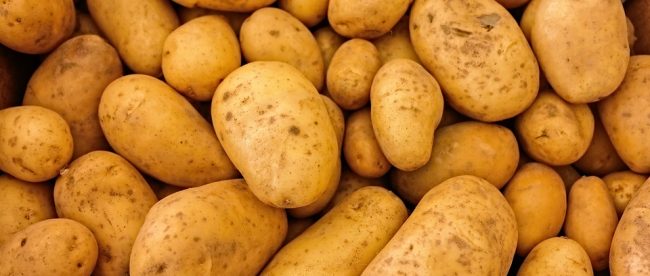The Man Who Ate Potatoes. Lots of Potatoes.

If you haven’t read the 2014 book The Martian, well, you should. (It’s excellent.) There’s a mini-spoiler ahead, so, reader beware.
That’s your warning. This sentence is here just to make you scroll down a bit before the spoiler hits. This one too, and the next. Let’s move on.
So, in the book, there’s a guy — an astronaut — who is stranded on Mars. He’s relatively safe, given the planet he’s on, but he’s going to need food. For reasons I can’t quite remember (I gave away my copy of the book), he has some potatoes on hand, so, absent other options, he decides to become Mars’ first potato farmer. His plan is to subsist on a diet of almost entirely potatoes — supplemented only by the limited other food, vitamins, and whatever else he has on-hand — until he somehow leaves Mars (or, more likely, doesn’t). Given where he was, he didn’t have any better options. But it led some people to ask: could a human survive on a diet of only potatoes?
After the movie (which I haven’t seen, long story) came out, Popular Mechanics asked a researcher named Bruce Bugbee to chime in. Bugbee runs the Crop Physiology Lab at Utah State University and studies things like how to grow food in space. Per Bugbee, potatoes are “a good choice” if you’re in the Martian’s situation; “they’re a good producer of carbohydrates and they can be a big part of the diet.” But, the nutritionists Bugbee consulted with warn, you shouldn’t go all-potato. They recommended 30 to 40 different foods; Bugbee, revising that to account for the difficulties of space travel, concluded that three to four — with appropriate supplements — would be okay.
He probably should have spoken to Chris Voigt.
Voigt really likes potatoes — it was his job. In 2010, he was (and still is) the executive director of the Washington State Potato Commission, an organization whose mission is to support the potato industry. And October 1, 2010, Voigt put his money — or his crop, at least — where his mouth is. On that date, he began a campaign to eat only potatoes, almost without exception. A typical day involved twenty potatoes — “no toppings, no sour cream, no butter [. . . ] literally just potatoes and seasoning, and oil for cooking,” he told the TODAY show.
Eater provides more of the details of this endeavor. One time, he ate an expired half-ounce bag of potatoes chips, because that was the only potato product the restaurant he was at had on hand. Then there was the potato ice cream made “by blending riced potatoes and ice and putting it in freezer,” and “topped with an ersatz chocolate sauce composed of a 1/2 cup cocoa powder, a 1/2 cup artificial sweetener, and water.” And finally, when he had a craving for pickles, he “soaked a potato in pickle juice” and “then he ate the potato.”
The goal wasn’t just for publicity, either. Voigt was explicitly trying to demonstrate that a person can live on potatoes alone in order to affect regulatory change. According to a nutritionist who spoke with Voigt, “the USDA had proposed eliminating the potato or restricting its consumption in various federal feeding and nutrition programs,” and Voigt’s stunt was a protest which demonstrated, in his view, the fallacy (in his eyes, at least) of that proposal. It worked. The USDA left the potato rules as-is.
Voigt’s diet also caused him to lose 21 pounds over the course of the sixty days, but potato fans beware — it could be dangerous. According to LiveScience, “you need healthy kidneys to process the excess potassium delivered by 20 potatoes a day,” and “you also need a store of nutrients potatoes lack, such as vitamin A for proper vision, or else exit this diet blindly.” Voigt spoke to a doctor before attempting the stunt to make sure he wasn’t at risk. So please, don’t try this at home — unless you’re living at a space base on Mars.
Bonus fact: Here’s a video on how Pringles are made (except they’re not “Pringles,” but some generic equivalent).
From the Archives: Regal Potatoes: Why do we eat potatoes anyway? We were tricked.
Related: “The Martian” by Andy Weir. 4.7 stars on 30,000+ reviews. Really. It’s great. Read it.
